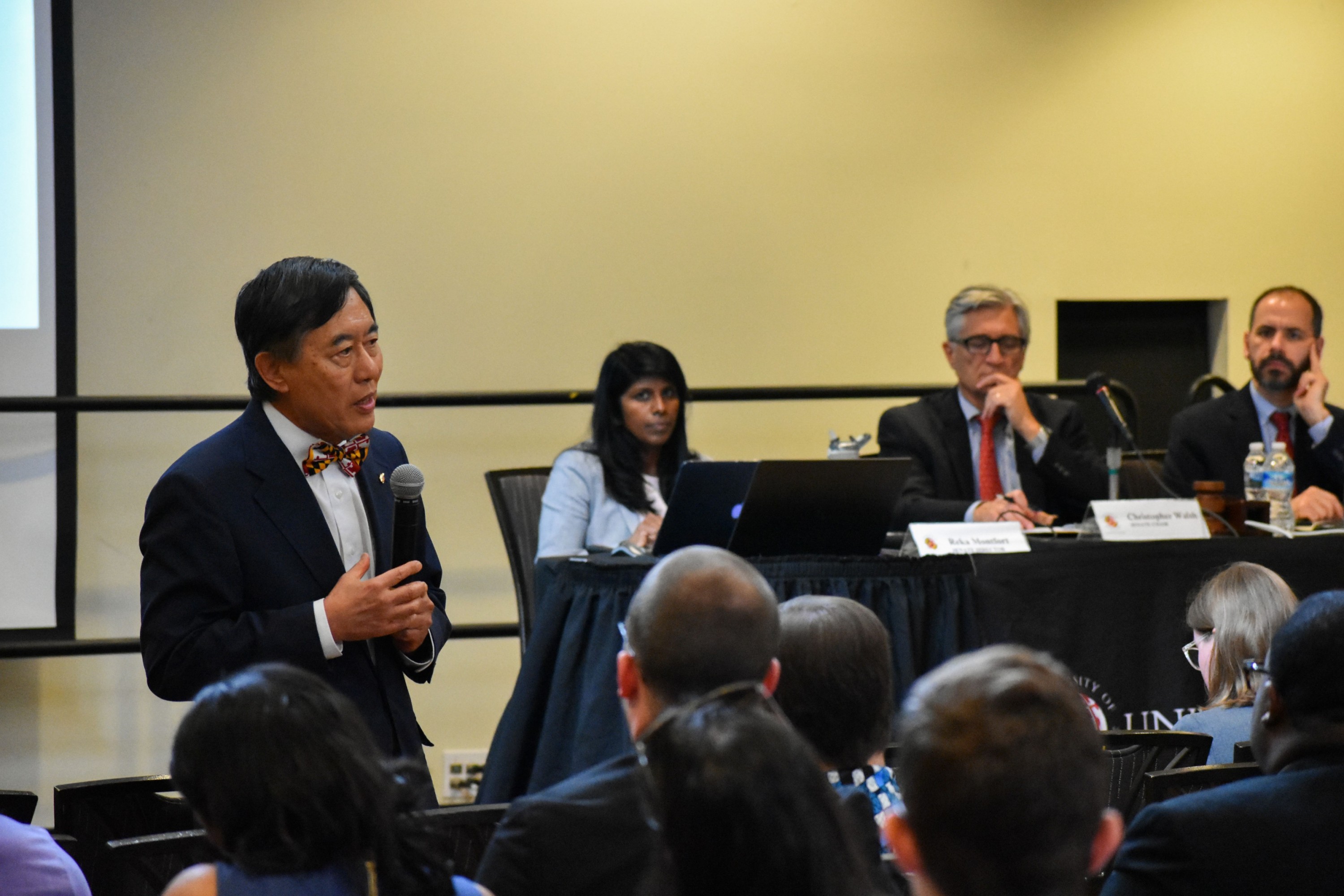The University of Maryland Senate passed a bill to change the way the university’s application asks about applicants’ criminal background.
The bill passed 63-26, but requires university President Wallace Loh’s approval. It’s part of an attempt to destigmatize applying to the university with a criminal background, said to Tom Cohen, the chair of the Senate’s Academic Procedures and Standards Committee.
Current questions include: “Has disciplinary action been initiated against you at any of the institutions attended, including the University of Maryland?” and “Have you ever been charged with, pleaded guilty to, or been found guilty of any criminal offense, other than a minor traffic violation, for which charges have not been expunged?”
The new questions are worded differently, instead asking: “Have you ever been convicted of a crime?” and “Do you have criminal charges pending against you?”
[Read more: UMD Senate recommends more gender-neutral bathrooms on campus]
The questions also ask if the applicant has faced disciplinary action from another institution or the military and if they have a restraining order against them.
In addition to the new questions, it will be made clear on the application that selecting “yes” does not automatically deny applicants from acceptance to the university, Cohen said.
Checking “yes” requires that a student explain their criminal background. After that, an admissions officer evaluates what the student wrote and determines whether or not they should be considered for admissions. Background checks are not available for the university to corroborate or disprove the applicant’s story, Cohen said.
There isn’t an official rule for determining which crimes are permissible on an application and which ones are not, but admissions officers evaluate if the crime has been committed multiple times or the gravity of the crime when considering an application, Cohen said.
The Maryland Fair Access to Education Act of 2017 states that public colleges and universities cannot ask applicants about their criminal background.
But the questions are allowed in this university’s case because the law doesn’t apply to third-party applications. As of last fall, the university uses the Coalition for Access, Affordability and Success application.
[Read more: UMD Senate committee will review results of Jordan McNair investigation]
Last year, 142 applicants with criminal backgrounds applied to the university. Only 14 were not cleared to be admitted to the university, according to Cohen.
“There is a balance between safety and access,” Cohen said. “If you look at the application, you don’t want to discourage people from even applying.”
The bill will be re-examined in five years by the Senate so its long-term effects can be evaluated.
Shannon Gundy, the director of undergraduate admissions, said the Admissions Department wholeheartedly supported the bill.
“We work very, very carefully to make sure we are not discouraging students who want to apply to this university,” she said. “We are doing a lot of work to make sure that students know that even if it is a serious infraction does not mean we will automatically turn them away.”
Some students did not support the bill, saying that the questions should be removed completely.
“Maybe they’re changing the words a little, but they are discouraging students completely,” junior architecture and government and politics major Sasha Kahn said. “We want to foster a healthy environment here, we’re a selective environment in the first place, students who deserve to be at the university should feel comfortable to apply in the first place.”



